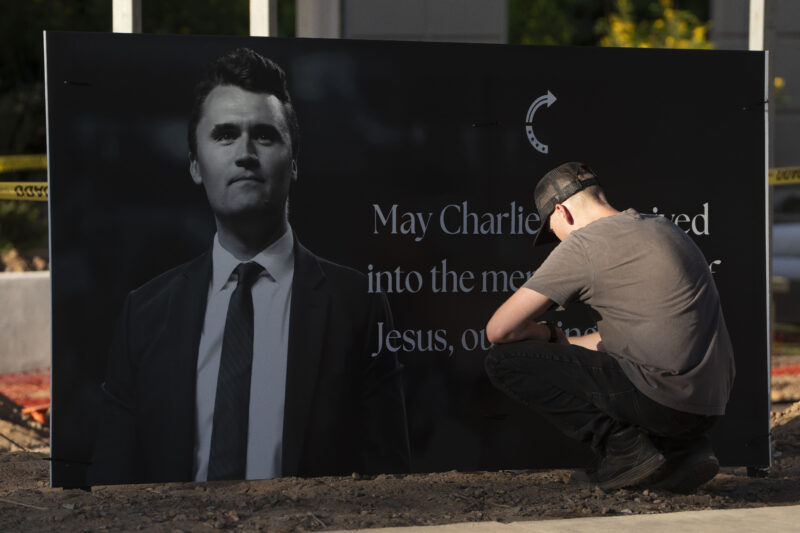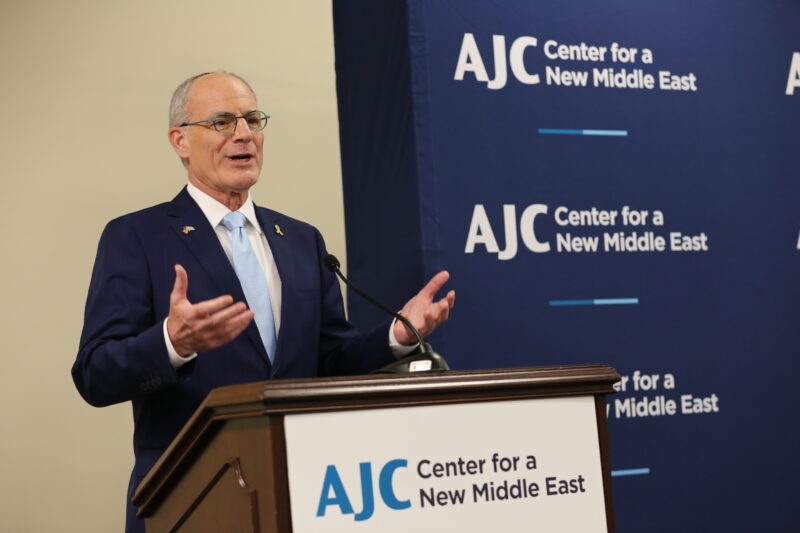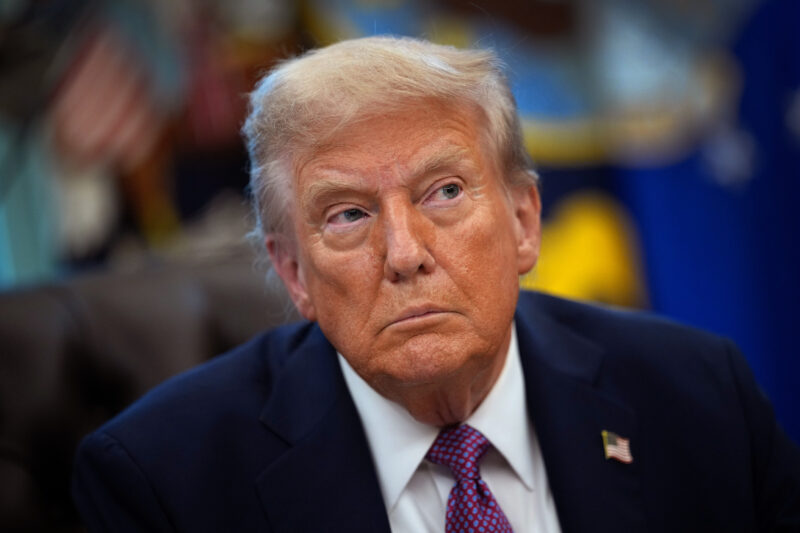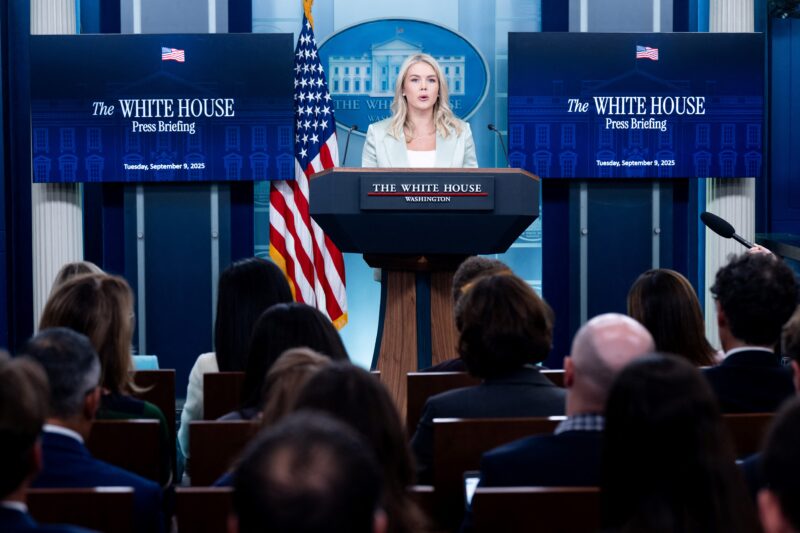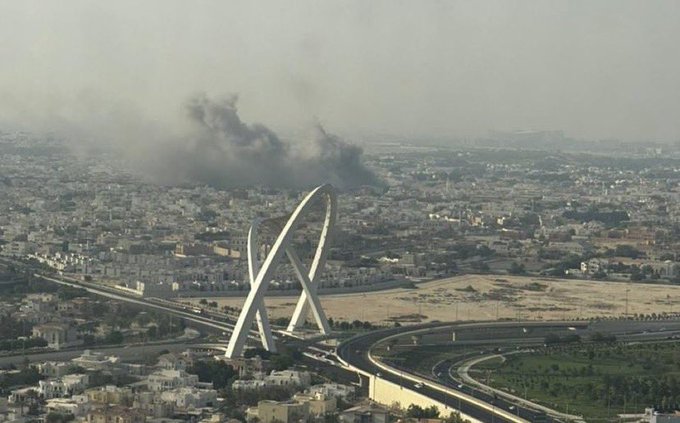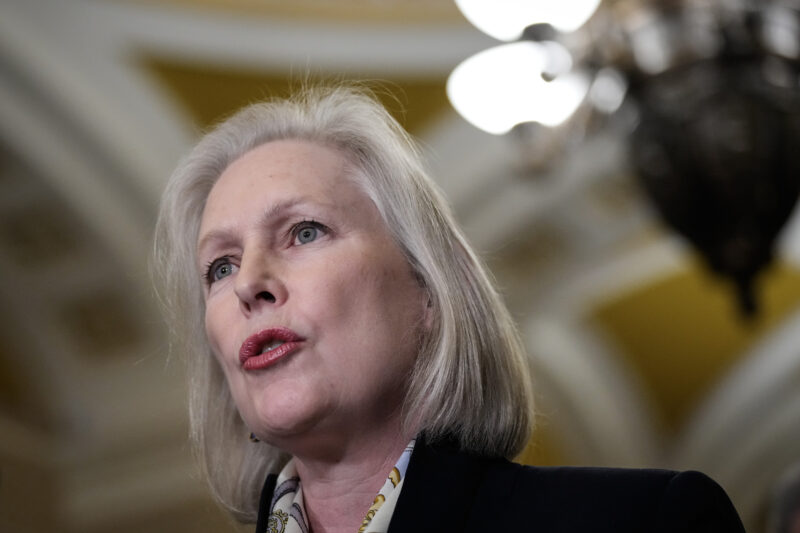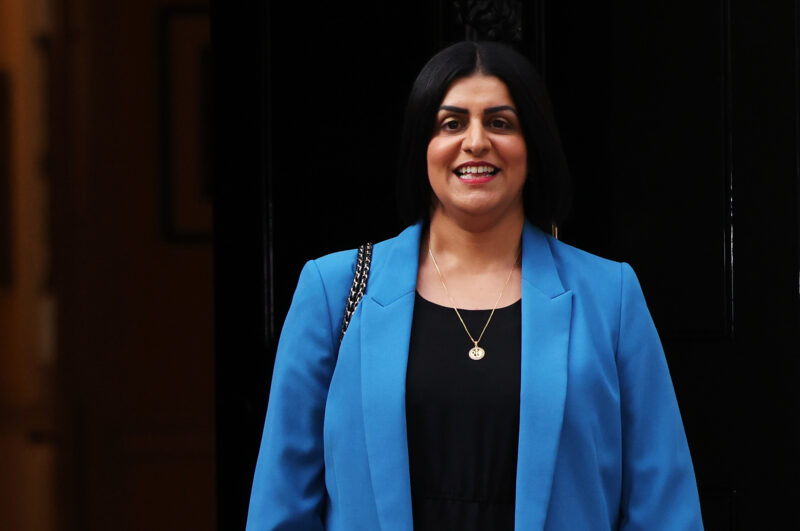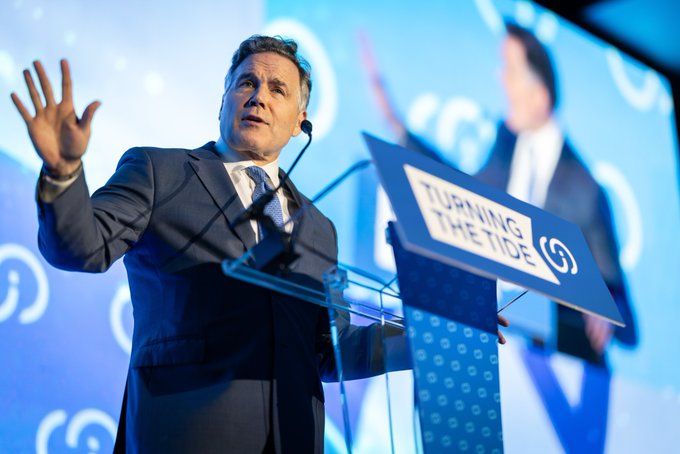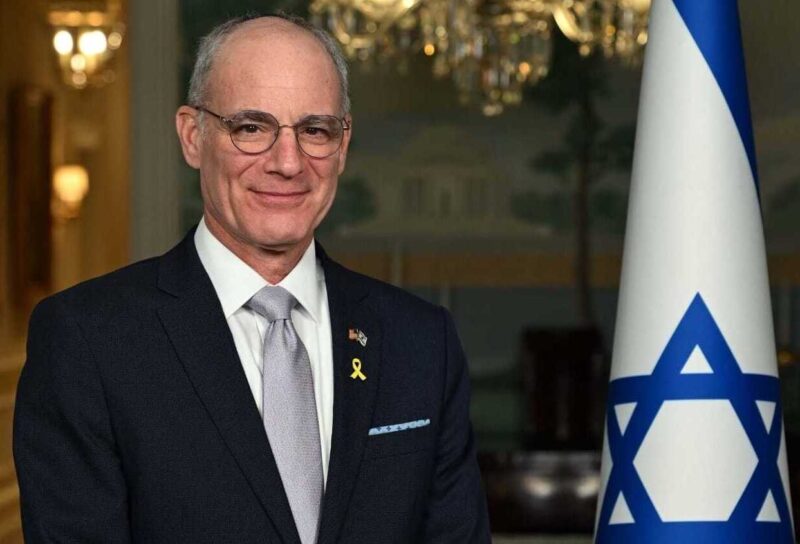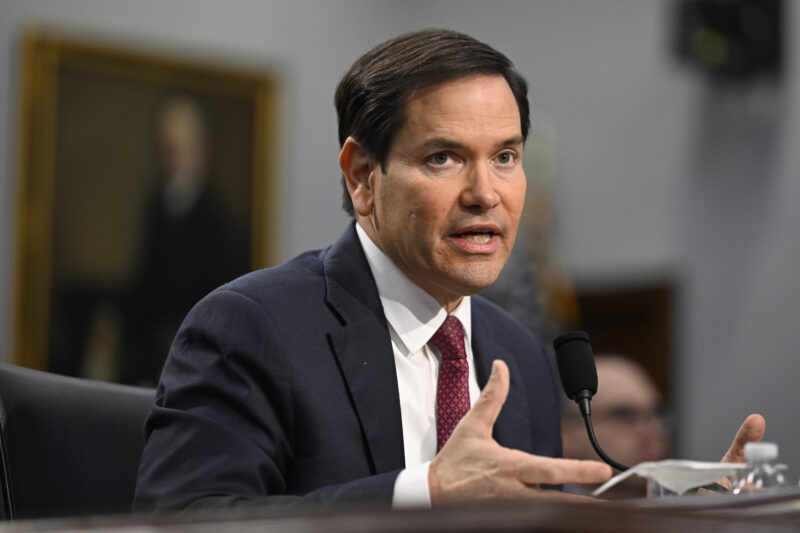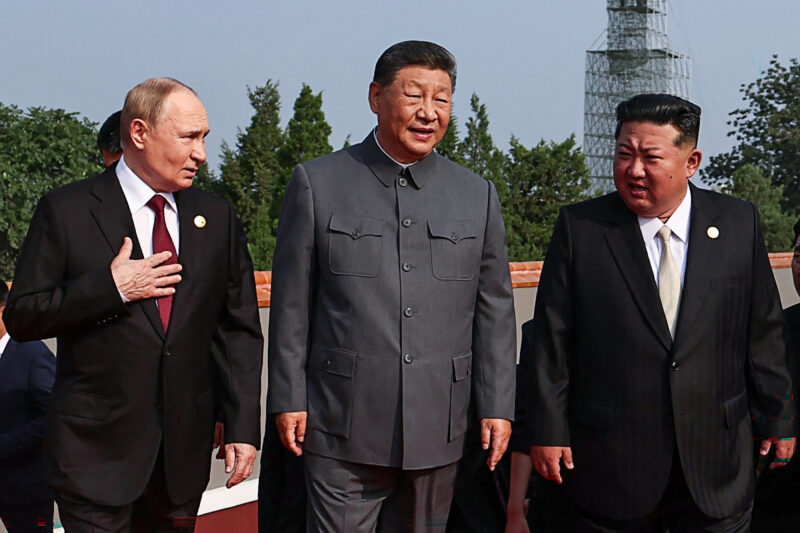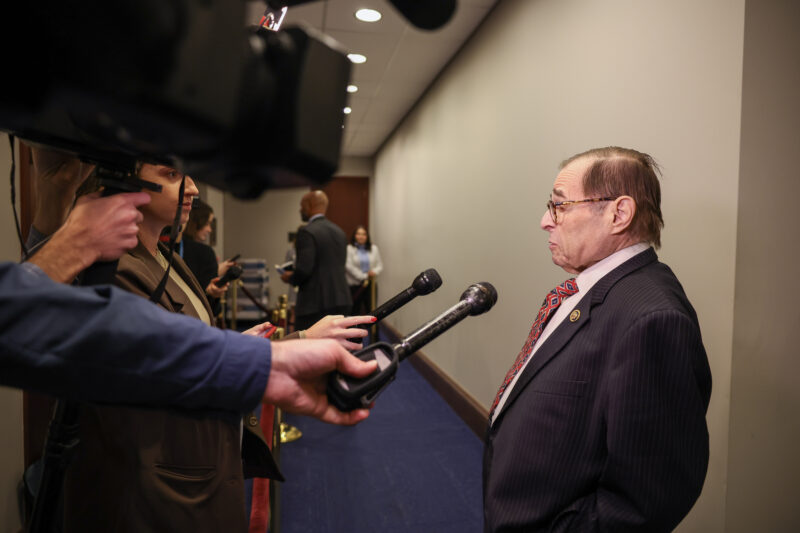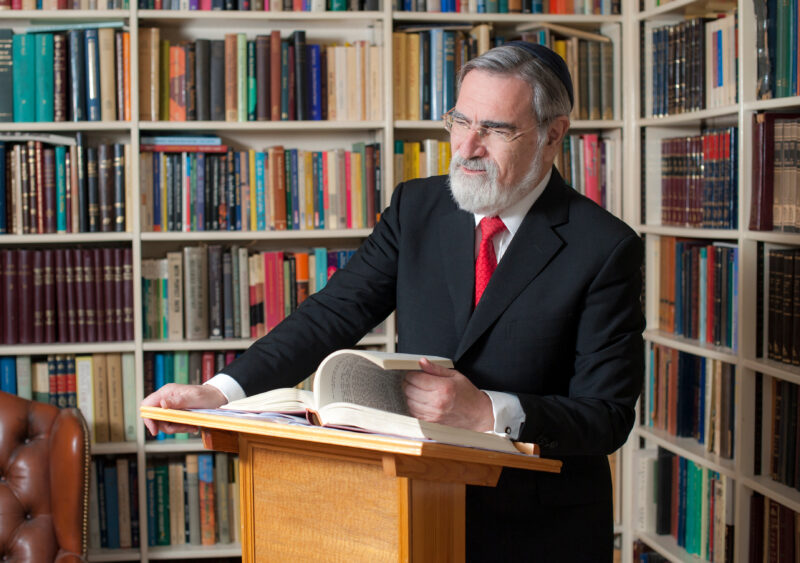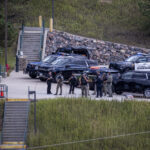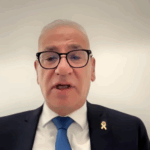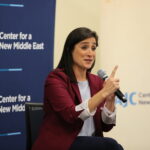Israeli Ambassador Yechiel Leiter to Iranians: Now is the time to help yourselves
In an interview with independent Iranian media outlet Iran International, Leiter said Israel is ‘not in the position to make a long-term strategy for another country. Our long-term strategy is to stay alive’

Mo Broushaky
Israeli Ambassador to the U.S. Yechiel Leiter speaks at an event with Iran International on June 24, 2025.
When Israeli Ambassador to the U.S. Yechiel Leiter agreed last week to a major interview with Iran International, the biggest independent Iranian news outlet in the world, the geopolitical status of the region looked very different than it did when Leiter sat down with anchor Fardad Farahzad on Tuesday morning at the National Press Club in Washington.
What was billed as a candid conversation with Leiter, where he would answer questions directly from Iranians curious about Israel’s approach to military strikes in Iran, turned into a newsy postmortem on the 12-day war between Israel and Iran, which had shakily come to a close just hours earlier with a ceasefire brokered by President Donald Trump and the Qataris.
Leiter touted Israel’s military victories but did not offer a full endorsement of the ceasefire — and asked whether he was surprised by Trump’s announcement on Tuesday night, he demurred: “I came to Washington on Jan. 27, and there hasn’t been one day where I haven’t been surprised,” Leiter quipped.
“I think we saw it coming, because we accomplished the vast majority of our goals, our military goals, and that’s diminishing to the point of elimination the path to a nuclear bomb and proliferation of ballistic missiles,” said Leiter.
In 12 days, Israel had “decimated [Iran’s] capacity to inflict tremendous damage on Israel,” Leiter continued. When pressed by Farahzad whether that meant Israel had eliminated Iran’s nuclear program, Leiter’s message was less straightforward.
“Eliminated is a big word. Obliterated is a big word. We can’t get into … what, exactly, ‘obliterated’ means,” said Leiter. (Trump said in a Truth Social post on Sunday that “obliteration is an accurate word.”)
While the details of how thoroughly Israel had damaged Iran’s nuclear and ballistic missile programs are still somewhat uncertain, the fact that Israel had achieved great military success in Iran in less than two weeks was not disputed.
Instead, much of the conversation featured Leiter grappling with the limits of Israel’s capabilities in Iran. As barbaric and evil as Israel finds Iran’s regime, Leiter reiterated that regime change is not on the table for Israel.
“There are few things that unite Israelis, but change in Iran is one of them,” said Leiter. “We want regime change. We’re certainly going to support it in every way we can. But militarily? No. War cannot bring regime change. It doesn’t work.”
Farahzad read questions that had been sent in by Iranian viewers and called on several Iranians in the audience. Almost every one of them asked some version of the same question: Now that there is a ceasefire, Iranians are afraid of what will come next for them. The mullahs remain in power, weakened and wounded. What will they do to the people of Iran? How can the U.S. and Israel leave the Iranian people on their own and walk away?
“Please help assuage the people of Iran’s mindset that the world leaders are saying stuff from both sides of their mouths, but they’re not taking into consideration that if the mullahs are left in power, it will do much more damage to the people of Iran,” one audience member pleaded with Leiter.
He acknowledged the precarity of this moment for the Iranian people, and their frustration at Israel’s inability to help them reach the outcome that many of them want. Instead, Leiter said he hoped Israel’s brief incursion into Iran, helped by the U.S., could spur Iranians who want a change in their country’s leadership to overcome their fears and bring about that change.
“I don’t think I have an answer that’s fully going to satisfy you,” said Leiter. “The bandwidth in the United States right now for anything that even smacks of regime change — very small bandwidth. The ability for Israel to act [by] itself for regime change is extremely limited. What we are doing is, I think, advancing the cause of liberty to a great degree. In our efforts to secure ourselves, we are moving the region into a greater effort of liberty. It takes time.”
Leiter presented a vision of a forward-looking Middle East, where the arc of history bends toward justice for the Iranian people, even if that arc is not a straight line.
“Based on history, I think we are moving towards an era of greater freedom, of greater people sovereignty. I think that that’s been helped, facilitated, by what we’ve done,” said Leiter. “We’re not in the position to make a long-term strategy for another country. Our long-term strategy is to stay alive.”
Iranians now worry that they may be left paying a price for Israel’s victory, as the country’s hard-line rulers lash out. Leiter acknowledged that, but countered that it is not only Israel who can help the Iranian people. He called for Europe to step up.
“We’re not the only democracy in the world. Why is it that the chancellor of Germany says Israel is doing the dirty work for all of us? We’re a tiny, little country. Where’s Germany? Where’s England? England has a huge stake,” said Leiter. “Are we the world’s policeman? Please. I would say to the chancellor of Germany, ‘You’re absolutely right. We’re doing the dirty work for the world, but it’s about time that you helped us.’ And if they did, it would be a lot easier for the people of Iran.”
The interview will air several times this week on primetime in Iran, and to Iranian diasporas around the world.




